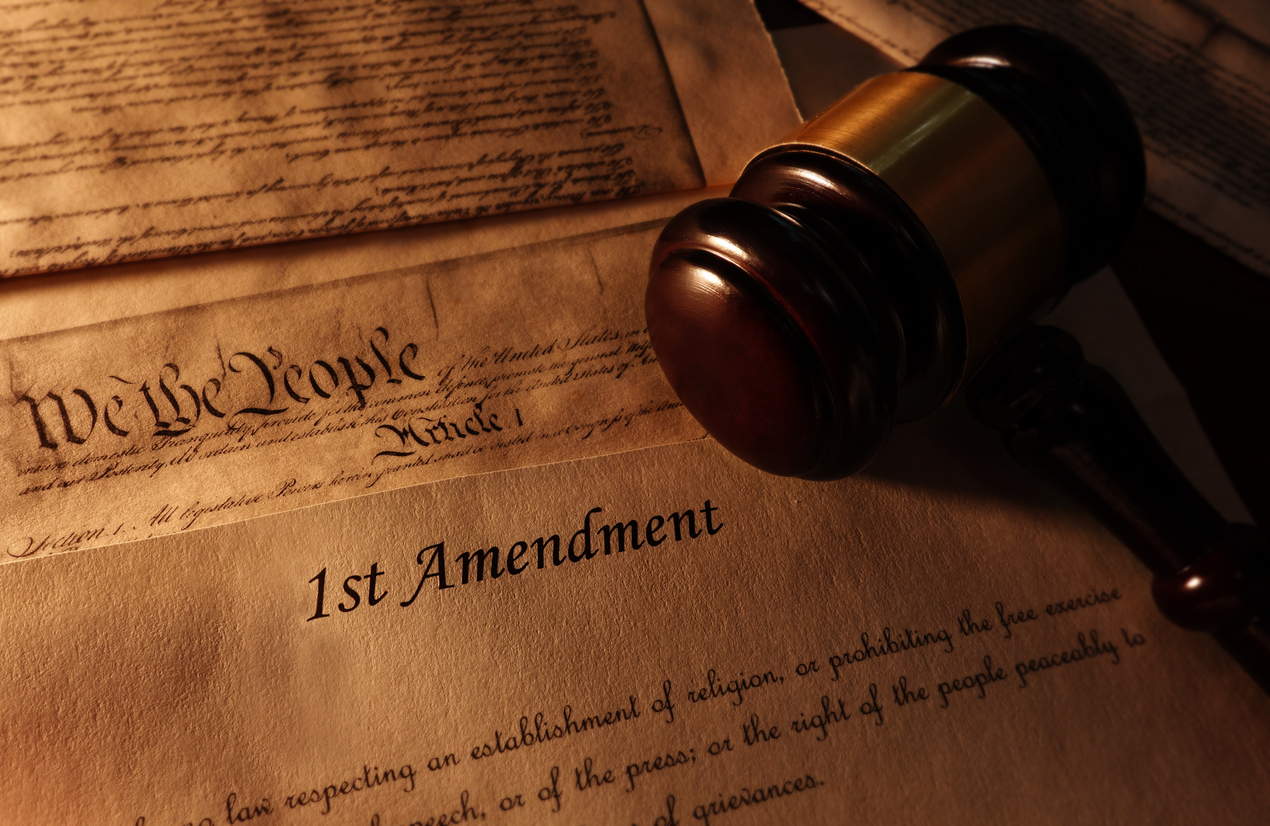Can Florida Courts Waive Parental Rights to Notification and Consent for Child's Abortion?
By Frank DeVito
Florida, like many other states, generally requires parents to be notified and to provide consent when their minor child seeks an abortion. Florida also has a provision, like many other states, that if a court determines a minor is sufficiently mature and faces certain circumstances, she can procure an abortion without her parents ever being made aware.
In Doe v. Uthmeier, a 17-year-old sought a judicial waiver to obtain an abortion without her parents having to consent or even be notified. The trial court found the minor’s testimony to be inconsistent and denied the judicial waiver. On appeal, the Florida appellate court upheld the trial court’s decision based on the facts of the case. But the court also questioned whether the judicial waiver law itself violates the Fourteenth Amendment by depriving parents of due process.
A note about advisory opinions
Before getting into the legal arguments here, there is an interesting procedural point. The court’s decision indicates that the judicial waiver of parental rights may be unconstitutional. But the court did not actually rule on the constitutionality of the judicial waiver law. Rather, the court certified the question, on its own motion, to be answered by the Florida Supreme Court.
This process of “certifying a question” for a higher court to answer - which is sometimes called an “advisory opinion” - is not allowed at the federal level. The US Constitution limits federal courts to hearing actual cases and controversies between parties. So, if a dispute is settled, the US Supreme Court no longer has jurisdiction to give advice or opinions on unresolved legal issues. In some states, including Florida, there are rules allowing state supreme courts to issue advisory opinions in certain situations.
The Florida decision and its effect
Here is how the Florida court articulated its decision: “After a hearing at which Minor testified, the circuit court found her testimony inconsistent and not credible, and it determined that she failed to establish entitlement to a judicial waiver. We affirm, and we certify a question of great public importance to the Florida Supreme Court.” The case was resolved based on the facts of the minor’s testimony and there was no need to rule on the constitutional issue. While I am not a Florida lawyer, a little research reveals that there is a process based in the Florida Constitution and the rules of appellate procedure where a question can be certified to the supreme court: the high court “may review any decision of a district court of appeal that passes upon a question of great public importance. . . . ”
So here we have an interesting situation where, even though this particular judicial waiver request has been resolved, the Florida Supreme Court will weigh in on whether judicial waiver of parental notice and consent requirements for a minor child to have an abortion will be ruled unconstitutional under the Fourteenth Amendment.
Keep in mind that any ruling issued here would only be a precedent in Florida. However, many other states have some kind of judicial waiver provision. It will be interesting to see 1) whether other states follow suit or 2) whether the US Supreme Court may one day take up this question of whether judicial waiver of parental rights violates the Fourteenth Amendment.
Parental rights and the rights of children
This case highlights a tension that has become more frequent in recent years. On one hand, there is the argument that parents have constitutional due process rights to notice and consent regarding decisions involving their children. On the other hand, there is an argument that minors have rights distinct from those of their parents – in this case the supposed right to an abortion.
There are legitimate questions about where precisely parental rights fit into constitutional law, since there is no reference to parental rights spelled out in the text of the Constitution. It is an important question to grapple with: at the time of the American Founding, institutions such as public schools, child protective services agencies, and organized police forces simply didn’t exist in the forms they do now. So perhaps there simply wasn’t the same need to articulate “parental rights” against the rights of state actors in the 18th century. But times have changed and it is clear that we need a legal articulation of the rights of parents over decisions regarding their children.
The Florida court makes it clear that parents do have a liberty interest that gives them extensive rights over decisions involving their kids. The court quotes Troxel v. Granville: “perhaps the oldest of the fundamental liberty interests” that the Fourteenth Amendment secures is the right of parents to the “care, custody, and control of their children.”
The minor child in Doe v. Uthmeier responded that she has constitutional rights to an abortion, which conflict with (and perhaps override) the rights of her parents. The court rejects this argument: the minor child “nonetheless points to various precedents that hold children are entitled to judicial waiver procedures to effectuate their state and federal constitutional rights to obtain an abortion. We are unpersuaded. Whatever asserted constitutional abortion rights may have justified Florida’s judicial-waiver regime in the past unequivocally have been repudiated by both the U.S. Supreme Court and the Florida Supreme Court.”
The court concludes that in Florida, if there was previously a tension, that tension no longer exists. “Therefore, any deprivation of parents’ due-process rights to notice and opportunity to be heard can no longer be justified by their children’s asserted constitutional right to obtain an abortion (much less a secret abortion that cuts presumptively fit parents out of the decision).” The supposed constitutional right to an abortion at the federal level was overruled by the US Supreme Court’s decision in Dobbs in 2022; Florida similarly recognizes no such right in its state constitution.
While Florida does not have a constitutional right to abortion, there is an explicit right to privacy, stating that “[e]very natural person has the right to be let alone and free from governmental intrusion into the person’s private life except as otherwise provided herein.” Art. I, § 23, Fla. Const. And while the Florida Constitution does acknowledge that this right to privacy includes minors to a certain extent, there is a specific constitutional carveout allowing parental notification and consent for an abortion: “The Legislature shall not limit or deny the privacy right guaranteed to a minor under the United States Constitution as interpreted by the United States Supreme Court. Notwithstanding a minor’s right of privacy provided in Section 23 of Article I, the Legislature is authorized to require by general law for notification to a parent or guardian of a minor before the termination of the minor’s pregnancy.” Art. X, § 22, Fla. Const.
Since there is no right to abortion in Florida to contradict the parental right to notification and consent, and since the notification and consent provisions are explicitly not in conflict with a minor’s right to privacy, it seems the Florida court is on solid ground in questioning the constitutionality of judicial waiver.
Implications for parental rights and religious liberty
While this is an interesting case in itself, there are many other similar legal tensions that implicate religious freedom and parental rights. Do therapists have the right to free speech and expression in the way they offer therapy to minors experiencing gender dysphoria? Do parents have the right to seek certain types of treatment for their children experiencing such issues? Do children have a right to “gender-affirming care,” especially when their parents oppose such action? Do minor children have constitutional rights to privacy, free speech, and equal protection that prohibit states from banning “gender transitioning” medical services and procedures for minors?
These questions need to be answered. If minors are given expansive “rights” to abortion or procedures that purport to change their genders, especially when their parents disagree with such decisions, this expansive list of so-called rights for minors conflicts with the due process rights of parents over the care and control of their children.
Hopefully, the Florida Supreme Court will issue a strong opinion in Doe v. Uthmeier that will lead the way for other states to examine the role of parents’ rights in limiting the harmful decisions that minor children are permitted to make.
.png)




